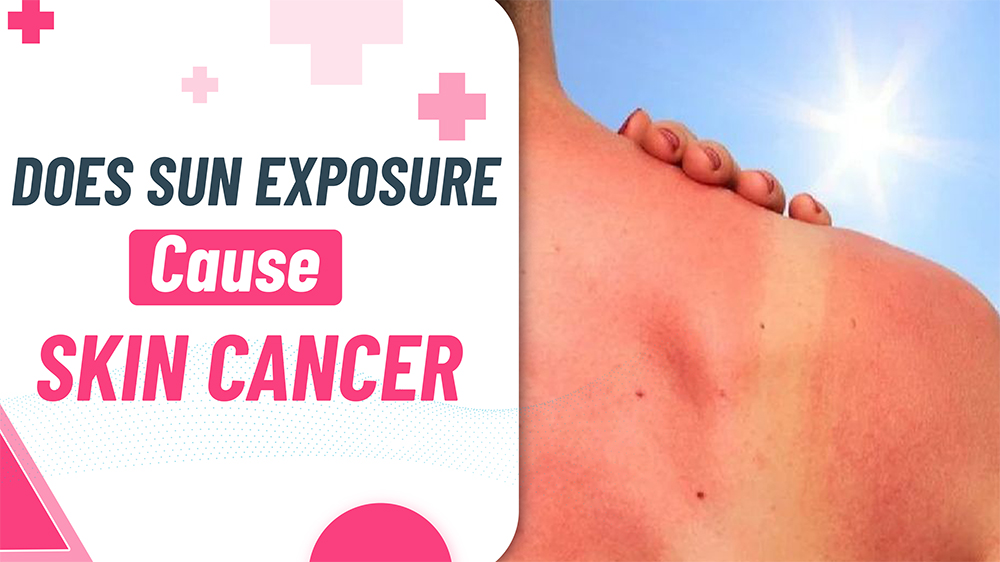Sunshine feels nice. It boosts our mood, helps us produce vitamin d, and motivates us to go outside. But alongside these advantages, there is a serious concern that many people have: Does being in the sun cause skin cancer? In this article, we will clear up this discussion by explaining the dangers, how our skin is affected by sun exposure, and what we can do to avoid risks.
What Happens When You’re in the Sun?
The sun is the source of ultraviolet (UV) rays which mainly include UVA and UVB. These rays have the potential of damaging the body. While UVB is responsible for sunburn at the surface, UVA penetrates deep into the skin, resulting in pre mature aging. Both types have the ability to ruin the DNA of the skin cells.
Damaged DNA can lead to skin cells growing abnormally and over time, this can result in skin cancer. It is not only sunburns that cause these problems: Long-term exposure, even without burning, can increase the chances of skin cancer.
Different Forms of Skin Cancer
Skin cancer is not exactly a singular condition. The three prevalent ones include:
- Basal cell of carcinoma: TIt is the most prevalent and non-aggressive type. Usually, it manifests as a small bump or patch of skin and does not spread.
- Squamous cell carcinoma: This is slightly more aggressive than basal cell carcinoma, as it is fairly more likely to grow and spread. However, when treated at the right time, this form is still manageable.
- Melanoma: This is the most aggressive type of skin cancer. It requires immediate treatment, as it spreads fairly rapidly.
UV exposure is vital for all three categories, but is extremely relevant to melanoma, especially for children and subsequent lifetime through cases of sunburns.
How Much Sun is Too Much?
At the moment there is no strict time limit in hours or minutes that can be considered safe for everyone. Factors such as location, time of the day, season, or skin type drastically change how harmful UV rays can be. For instance, individuals with lighter skin are usually at a higher risk when compared to people with darker skin tones.
Most experts still recommend avoiding prolonged contact without protection, as they can dramatically increase one's risk. But even on cloudy days, one can not let their guard down, since UV rays also penetrate pocket of clouds.
Can Skin Cancer Be Prevented?
Yes, to a great extent. Preventing skin cancer is mainly about avoiding prolonged exposure to sharpm ultraviolet rays. Here are a few actions you could try:
- Apply Sunscreen: A protective cream with minimum SPF 30 is required. For utmost protection, a broad-spectrum sunscreen should be used. It should also be reapplied after every two hour, swim, or intense physical movement.
- Avoid Peak Sun Hours: The sun gets scorching between 10 a.m and 4 p.m. During these hours, one should indispensably spend time indoors or under shades.
- Avoid Tanning Beds: They also produce dangerous ultraviolet rays.
Signs To Watch For
Leaving a notification untreated usually leads to dire outcomes, changing moles is one of them. Some other aspects to watch for include:
- Nonhealing sores
- Redness or swelling beyond the original spot
- Tingling sensation or tenderness of certain parts of the body.
- Ignoring certain skin conditions is a poor choice, leading to consultation with skin experts and oncologists.
Treatment depends on timely reporting of technologies that can provide definitive diagnosis for abnormal skin conditions.
Talk To Experts regarding skin cancer
One of the experts in cancer treatment in Gurgaon is Dr. Pooja Babbar. Over the past 15 years, she has helped countless patients manage their processes with unparalleled care and precision. She combines the latest treatment methods with compassion. Many patients who once felt hopeless have found a new lease on life because of the strength her personalized care offers.
Final Thoughts
While exposure to the sun does increase the chances of skin cancer, it is something manageable with good practices and consistent skin examinations. Skin protection does not mean avoidance of the sun; it is about appreciating its power while exercising caution.
If you have any questions or see any troubling signs on your skin, consult a specialist oncologist like Dr. Pooja Babbar. The combination of early and correct diagnosis as well as expert treatment makes a substantial difference.
Dr. Pooja Babbar offers her consultation services along with a wealth of experience and compassion. Resources are available at your fingertips, so do not hesitate.














